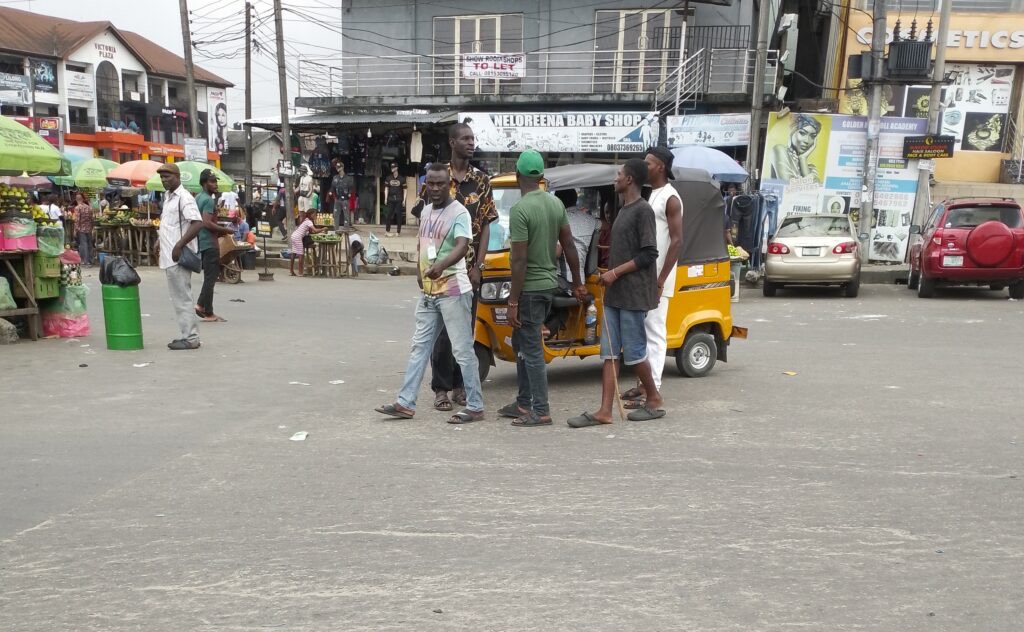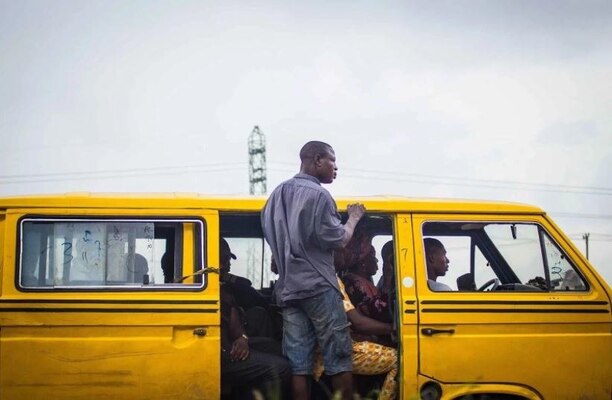Sunkanmi Adewunmi
The transportation sector in Lagos is highly lucrative. With everyone constantly on the move, public transportation has become the preferred choice for pedestrians across the city, offering pocket-friendly options to suit their needs.
Despite the lucrative nature of Lagos’ transport sector, drivers’ earnings, which can reach ₦30,000 daily, are undermined by persistent challenges. Operating from parks that maintain order through a queue system, these transport workers take turns loading passengers, pay required dues, and return to the queue after each trip. On the road, they navigate bus stops, where they drop off passengers, pick up new ones, or face agberos demanding fees.
Agberos are informal tax collectors commonly found at parks and bus stops. They are notorious for their persistence and are often willing to go to great lengths for as little as ₦100.
We spoke to some public transport workers to know how they felt about agberos and their fees. Both of my respondents asked that they remain anonymous for safety reasons so we will be referring to them as Alex and Sunday.
Alex has been in the transportation business for three years but only works part-time, treating it as a side hustle. He works twice a week, on Tuesdays and Thursdays. “It’s terrible. I have nothing good to say about it. Sometimes I hate the job,” Alex shared when asked about his feelings towards the agberos and their fees. He also spoke about how the job impacts his emotional wellbeing. “Whenever I come to work, I’m always sad. The job doesn’t make me happy. The government needs to reorganise these people because even the drivers themselves can make you hate the job with their behaviour. It makes me feel bad to be a part of it.”

Sunday, on the other hand, has been in the job for two years, driven into it by personal circumstances. “If you have a good working vehicle, you’ll be able to earn enough to cater for yourself for the day, but these people (agberos) will vandalise your vehicle for ₦100. They don’t even mind slapping or beating you for it. At the end of the day, they take the money by force,” he explained.
Sunday highlighted the additional burden most drivers face. “Many of these drivers don’t own their vehicles. Some are either renting them or working under someone who they remit a percentage of their daily or weekly earnings to. When agberos damage these vehicles, drivers have no choice but to use their earnings to pay for repairs. To make up for the losses, drivers often work late into the night when the agberos are no longer on the roads,” he concluded.
Lagos’ public transport is essential to daily life, yet its drivers face systemic challenges and exploitation by agberos. Despite the industry’s profitability, inefficiencies and unfair practices drain their income and morale.









